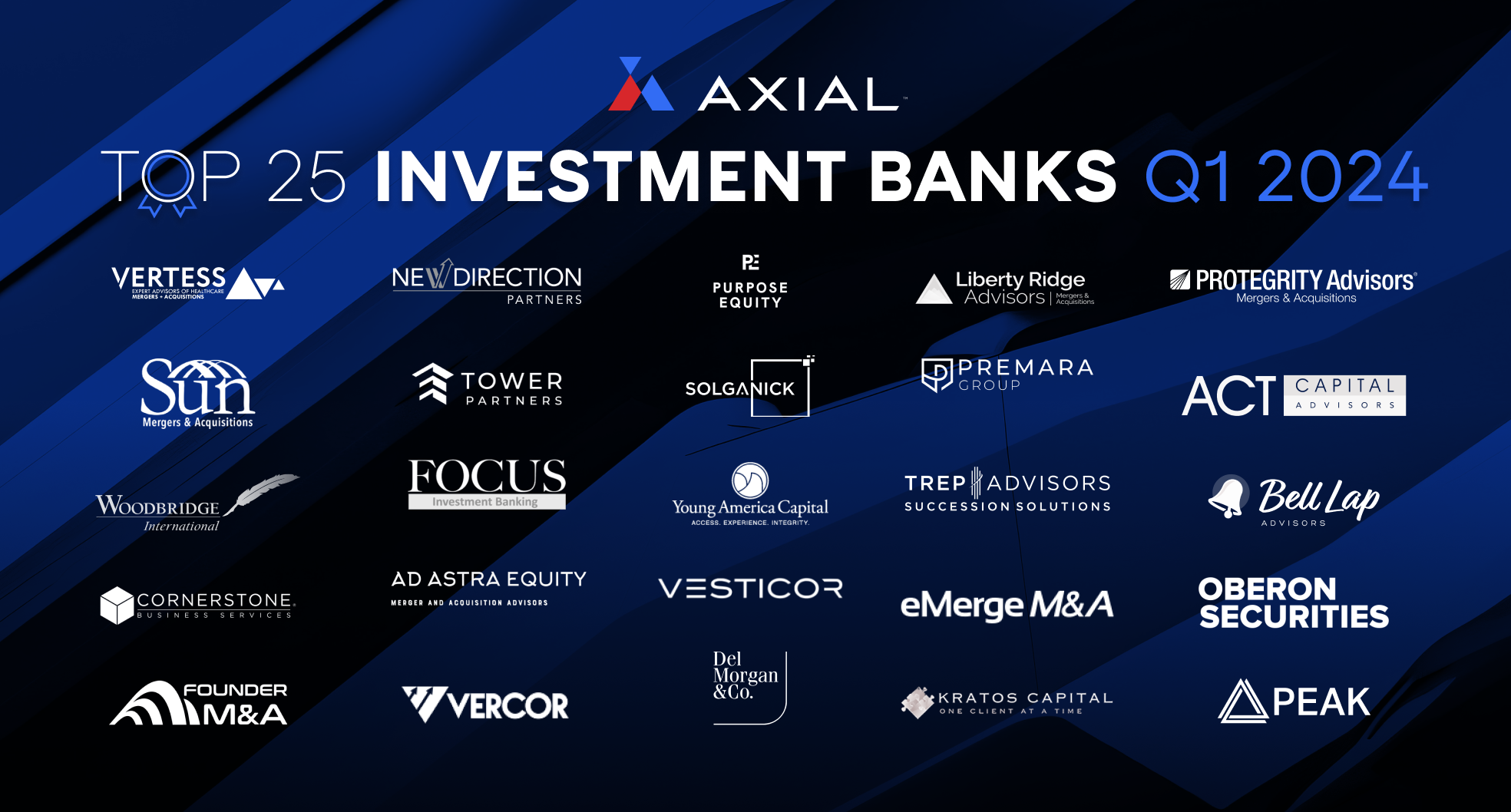
Top 25 Lower Middle Market Investment Banks | Q1 2024
Axial is excited to release our Q1 2024 Lower Middle Market Investment Banking League Tables. To assemble this list, we…
Legal and financial due diligence are necessities for a successful M&A transaction. Given the increasingly complex nature of most deals, it may be tempting to focus on these traditional areas when evaluating a potential investment or acquisition.
However, savvy buyers know that successful due diligence extends much farther, including an evaluation of company culture.
Here are three aspects of cultural due diligence to attend to.
1. Company Values
A company may have the EBITDA, market share, and customer concentration you’re looking for, but if they don’t have the right values, an investment might go south before it gets off the ground.
Does the company have stated values that team members can articulate? Do the internal and external documents you’ve seen (e.g., emails, strategic plans, marketing copy) support those values, whether implicitly or explicitly? Do these values line up with your values as an investor? Where are there potential areas of conflict?
Sitting down to have a candid conversation – perhaps outside a formal management meeting, if appropriate – with the business owner can help potential buyers get a better sense of the lived values of a company, in addition to the stated values. On-site visits also provide a helpful window into company culture and values.
2. Employee Engagement
According to a recent survey from Mercer, 64 percent of buyers “indicated that talent-related issues are the most significant focus of due diligence.”
One way to evaluate a company’s talent is to look at how engaged they are — do they display a sense of ownership, do they take initiative, is retention strong? How much of the talent is concentrated in the upper echelons of management vs. spread out through the company?
“Everyone will say that people are the heart of a company; people are the best asset,” says Sean Hutchinson, founder and CEO of Strategic Value Advisors. “But if people aren’t engaged, if they are disconnected from the mission and purpose of the company, and they don’t understand why their contributions are valuable, you’ve got a huge problem. I wouldn’t invest in that kind of company.”
(Read more about how an engaged team can maximize company value.)
3. Turnover
Turnover rates can be closely correlated to employee engagement, and are one of the most effective quantitative ways of measuring company culture.
Look into how many people are leaving, for what types of opportunities, and from what areas of the company. Ask to see records from exit interviews, if applicable. Remember that both high turnover and extremely low turnover can be problematic — the former may indicate a dissatisfied or disempowered workforce, while the latter may mean employees are unduly resistant to change.
Ask the owner and/or management team for their interpretation of the company’s turnover rate. In addition, try to shore up your evaluation with outside sources in the industry if possible – while a given company’s reputation may not be entirely grounded in truth, it could provide you with valuable questions to ask the management team or additional areas to dig into.
